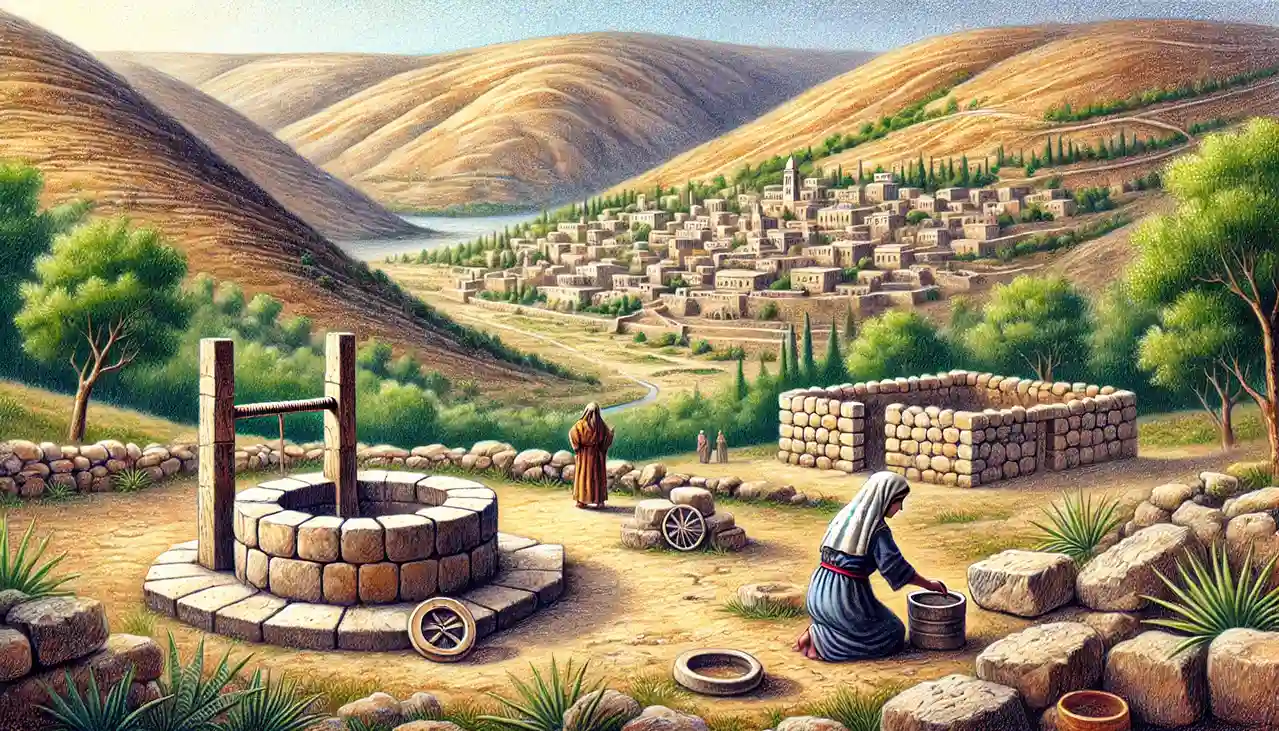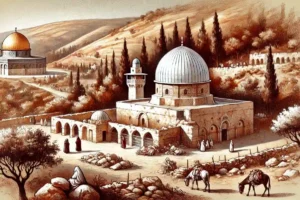
Shechem: A City of Covenant and Conflict
Shechem is an ancient city with deep biblical roots and significant historical events. Here are some key facts about Shechem:
- Location: Shechem is located in the region of Samaria, modern-day Nablus, in the West Bank.
- Biblical Significance: Shechem is first mentioned in the Bible in Genesis 12:6-7 when God promised the land to Abram’s descendants.
- Covenant Renewal: Joshua renewed the covenant with the Israelites at Shechem (Joshua 24:1-25).
- Jacob’s Well: Near Shechem, Jacob dug a well, which is mentioned in John 4 as the site where Jesus spoke with the Samaritan woman.
- Historical Events: The city witnessed several significant biblical events, including the story of Dinah (Genesis 34) and the division of the kingdom after Solomon’s reign (1 Kings 12:1).
Shechem’s prominence in biblical history is underscored by its geographical and spiritual significance. Situated in the heart of Samaria, Shechem is one of the earliest sites associated with the patriarchs and has a continuous thread throughout Israel’s narrative in the Bible.

Patriarchal Era: In Genesis 12:6-7, Shechem is first mentioned as the place where God appeared to Abram (later Abraham) and promised that his descendants would inherit the land. This initial divine encounter marks Shechem as a place of promise and blessing. Abram’s construction of an altar there signifies the city’s importance as a center for worship and divine revelation.
Covenant Renewal: The significance of Shechem is further highlighted in Joshua 24, where Joshua gathered all the tribes of Israel to renew their covenant with God. This event took place at Shechem, underscoring its role as a spiritual and communal hub for the Israelites. Joshua’s call to the people to choose whom they would serve and their reaffirmation of allegiance to the Lord highlight Shechem as a pivotal location for Israel’s spiritual commitments.
Historical Events: Shechem also serves as the backdrop for several critical historical events. In Genesis 34, the city is central to the story of Dinah, Jacob’s daughter, who was defiled by Shechem, the son of Hamor the Hivite. This incident led to violent retribution by Dinah’s brothers, Simeon and Levi, which significantly impacted the family dynamics and the surrounding communities.
The city is again prominent in 1 Kings 12:1 when Rehoboam, Solomon’s son, went to Shechem to be crowned king. This event is crucial as it led to the division of the united kingdom of Israel into two separate entities: the northern kingdom of Israel and the southern kingdom of Judah. The people’s refusal to accept Rehoboam’s harsh policies, resulting in Jeroboam becoming king of Israel, signifies a major turning point in Israel’s history, marked by political and social upheaval.
Jacob’s Well and New Testament Connections: Near Shechem is Jacob’s Well, an important site in both Jewish and Christian traditions. This well is traditionally associated with the patriarch Jacob, who dug it as mentioned in John 4. This well is the setting for Jesus’ encounter with the Samaritan woman, an event rich in theological significance. Jesus’ conversation with her about living water and true worship expands the narrative of Shechem from the Old Testament into the New, illustrating the continuity of God’s work from the patriarchs to Jesus’ ministry.
Spiritual Symbolism: Shechem symbolizes the spiritual journey of Israel, encapsulating themes of promise, covenant, conflict, and redemption. The city’s recurring appearance in significant biblical events reflects its enduring importance as a place where key decisions, revelations, and commitments to God were made. It serves as a reminder of the faithfulness of God and the importance of covenant faithfulness among His people.
In conclusion, Shechem stands as a testament to the ongoing narrative of God’s interaction with His people. From the promises made to Abraham to the renewal of the covenant under Joshua, and the significant historical and spiritual events associated with it, Shechem’s rich biblical heritage continues to offer profound insights into God’s redemptive history.



